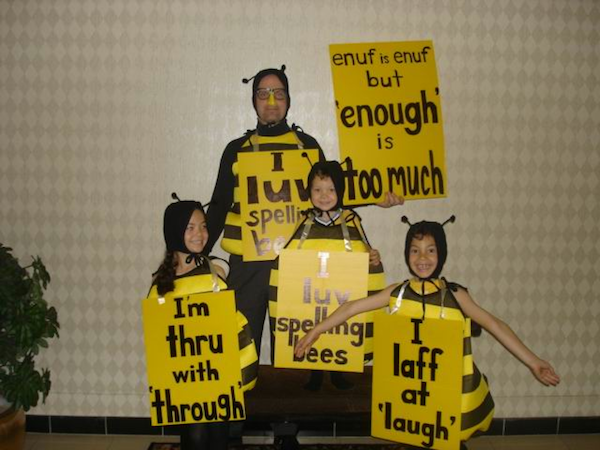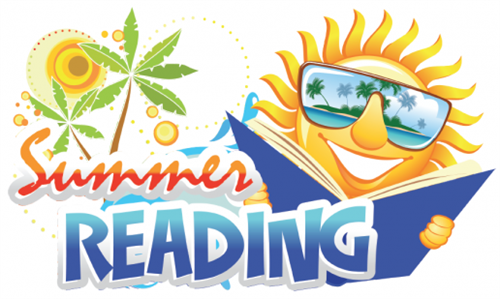Six More Logikul Wayz To Spel English that Never Caut On
BEEMAN, ah-ah-ahhhh!
When it comes to regular, predictable orthography, English is a hot mess. Our language built of ill-gotten calques, mutant morphemes, and poorly-constructed neologisms adds up to a zany, mongrel, bric-a-brac vocabulary (that sentence alone contains words from four linguistic groups). In other words, spelling is im-freaking-possible. Take the very word language: why isn’t it pronounced “lan-goo-a-gee”? Or spelled langwidge? With the exception of a few spelling-bee know-it-alls (*sheepish wave*), no one enjoys struggling with making wurdz luk rite.
But history has known some clear-eyed crusaders who tried—really tried—to get us to make some damn sense with our letters and sounds. Here are six alternative movements that (sadly) failed to cast a spell.
Cut Spelling
“Wen readrs first se Cut Spelng, as in this sentnce, they ofn hesitate slytly, but then quikly becom acustmd to th shortnd words and soon find text in Cut Spelng as esy to read as Traditionl Orthografy, but it is th riter ho really apreciates th advantajs of Cut Spelng, as many of th most trublsm uncertntis hav been elimnated.”
Though it might read like a Hip New Way 4 Teenz 2 Txt, Cut Spelling is actually a method promoted by the Simplified Spelling Society (now called the English Spelling Society). True to its what-you-see-is-what-you-get philosophy, Cut Spelling does what it says on the tin: knock out superfluous letters and make most words 8-15% shorter. Unpronounced letters and unstressed vowels get the ax, while double consonants get simplified and gh and ph swap out for a simple f. It may never catch on (alas), but the English Spelling Society will NOT TAKE THINGS LYING DOWN: they’ve been known to stage protests outside the Scripps National Spelling Bee, including—and I am not making this up—a character known as “Beeman.” (See above! SEE VERY ABOVE! L@@k at those costumes.)
Simplified Spelling
NOT to be confused with the Simplified Spelling Society (see above), the Simplified Spelling Board had a brief but well-funded life thanks to a $15k kickstart (worth about $350,000 today) from Andrew “Moneybags” Carnegie. Their issue: most English words are okay, but “a vast improvement could be effected by reducing to some sort of regularity the much-used tenth that makes most of the trouble” (which is a grandiloquent whopper of a mission statement for an organization devoted to clarity). Their list of 300 respelt words got as far as an official mandate from President Theodore Roosevelt, but mockery from across the pond and homegrown linguistic luddism embarrassed Congress into passing a firm resolution on olde-style spelling.
The board did go on to publish a Handbook of Simplified Spelling in 1920, but without their elite patron’s support they folded that same year. Carnegie was understandably ticked at having dumped some of his hard-won robber-barony into a dead end pet project; in a 1915 letter to the board’s president, he remarked (rather cattily) that “I think I hav been patient long enuf… I hav much better use for twenty thousand dollars a year.”

Ben Franklin’s phonetic alphabet
The stove, bifocals, and…a bunch of curlicue letter-things? America’s most inventive founding father had a few ideas for improvements: nix c, j, q, w, x, and y, and add in new letters for vowel sounds, sh, ng, and voiced and voiceless th sounds. As Franklin himself wrote, “It is endeavoured to give the Alphabet a more natural to Order, beginning first with the simple Sounds form’d huh by the Breath, with none or very little Help of Tongue, Teeth and Lips, and produc’d chiefly in the Windpipe.”
Unfortunately, most of his instructions for how to pronounce his shiny new glyphs read like the pronunciation equivalent of a dance-step diagram. S, for example “is form’d by the Breath passing between the moist End of the Tongue and the upper Teeth.” Um, grossssss.
SoundSpel
Mi hart aeks, and a drouzy numnes paens
Mi sens, as tho of hemlok I had drunk,
Or emptyd sum dul oepiaet to the draens
Wun minit past, and Lethe-wards had sunk:
'Tis not thru envy of thi hapy lot,
But beeing too hapy in thien hapynes,
That thow, liet-wingèd Dryad of the trees,
In sum meloedius plot
Of beechen green, and shadoes numberles
Singest of sumer in fuul-throeted eez.
Is it Keats, or is it an Old English saga?
SoundSpel—which sounds like the name of some cool text-to-speech robot-thing—is actually just the final permutation of several systems of spelling, beginning with “Classic New Spelling” and working its way through “NuSpelling” (which sounds like the name of an educational program to make The Youth think spelling is Hip) to its final evolved form in 1987.
SR1
(As an editorial aside: isn’t it kind of a terrible idea to have your language-reform group named something cryptic and unpronounceable? Just a thought).
SR1 (not to be confused with MI6, SI:7, or WVYS) is another outcropping of what is now the Simplified Spelling Society (I know this is getting a little Life-of-Brian-y; these are the guys with Beeman again). Their chief weapon was surprise a proposal called “Stage 1,” which eventually incurred four additional steps that sound like comic-book onomatopoeias for getting socked in the jaw: DUE, ph, augh, and ough. Surprisingly, it sort of caught on in Australia—the Australian Teacher’s Federation adopted it in 1975…but then dissolved entirely in 1987. Tuf luk.
SaypU
That’s short for Spell As You Pronounce Universally, or, sorry, Spel az Yu Prɘnawns Yunivɘɘrsɘlli. The idea is to create a universal phonetic alphabet that’s consistent across languages…but isn’t the already-extant International Phonetic Alphabet (IPA). It’s a noble idea, but really? Stop trying to make schwas happen. No civilians can read those “weird little backwards e things”!
(Top image via the English Spelling Society)

Blair Thornburgh
BLAIR THORNBURGH is a graduate of the University of Chicago, where she earned a B.A. in medieval studies and delivered a pretty good commencement speech. She lives in Philadelphia.


